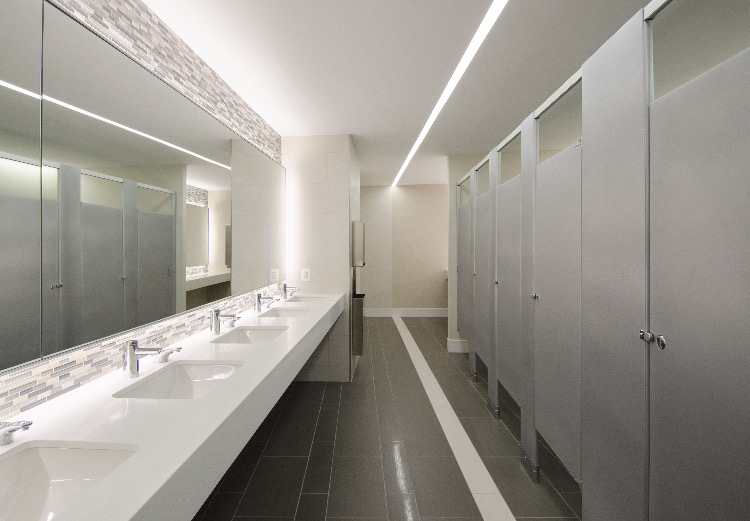Workplace Accommodations for MS: How to Get the Support You Need
Empowering professionals to navigate MS workplace accommodations with confidence.
Managing your (MS) in the workplace isn’t just about doing the job, it’s about doing it in a way that works for you. The right workplace accommodations can make all the difference, helping you stay productive, comfortable, and in control of your career.
This guide covers many of the common MS workplace accommodations requested by professionals with MS from flexible scheduling to managing fatigue, assistive technology needed to support mobility or cognitive challenges, or simple workspace adjustments that improve accessibility. Understanding your options is the first step toward advocating for what you need while staying confident in your role.
Full Disclosure:
At no point did I formally request MS workplace accommodations. Fortunately, any changes to my work environment or routine were the product of a DIY approach or informal agreements with my management team. In my particular situation, that was what worked best. But every case is unique what’s right for one person may not be right for another.
Whether you’re looking for small adjustments or formal workplace modifications, this guide will hopefully help you explore your options and make informed decisions.
1. Physical Accommodations
• Ergonomic Workstations: Providing adjustable desks and chairs to support posture and reduce strain.
• Assistive Devices: Supplying tools like grab bars or mobility aids to assist with movement.
• Accessible Facilities: Ensuring restrooms, entrances, and common areas are wheelchair-accessible.
2. Scheduling Accommodations
• Flexible Work Hours: Allowing variations in start and end times to help manage fatigue.
• Part-Time Schedules: Offering reduced hours to accommodate energy levels.
• Telecommuting: Permitting work-from-home arrangements to reduce commuting stress. (For me…the biggie)
3. Environmental Accommodations
• Temperature Control: Providing fans or heaters to maintain a comfortable workspace temperature.
• Reduced Noise Levels: Implementing noise-canceling devices or quiet areas to enhance concentration.
• Adequate Lighting: Ensuring proper illumination to alleviate visual strain.
4. Technological Accommodations
• Assistive Software: Implementing speech-to-text programs or screen readers to aid those with visual or dexterity challenges.
• Adaptive Hardware: Providing specialized keyboards or mouse devices to facilitate computer use.
5. Policy Accommodations
• Modified Attendance Policies: Allowing for medical appointments or rest periods without penalty.
• Extended Breaks: Granting additional short breaks to manage symptoms like fatigue. Micro-naps.
• Job Restructuring: Reassigning non-essential tasks that are challenging due to MS symptoms.
How to Request Workplace Accommodations (With the least amount of Stress!)
Step 1: Assess What You Need.
Which MS symptoms are making my job harder? What changes would help me work more effectively? Can I continue doing my job with some adjustments? Remember to please talk to your doctor or an MS specialist for needed medical input.
Step 2: Write a Clear Accommodation Request. Keep it simple. You don’t need to disclose your full medical history, simply explain how MS affects your work and suggest solutions. 📌 Sample Accommodation Letter
Step 3: Start the Conversation (The Interactive Process). Once you submit your request, your employer must work with you to find a reasonable solution. This back-and-forth is called the Interactive process it’s your legal right and it’s covered by the ADA.
Some accommodations are formalized through HR or you management, others (like mine) begin with a conversation. If you’re weighing whether to disclose your MS at work this guide outlines best practices and considerations.
Tips For Success:
Be clear and specific about what you need, offer alternative solutions if the first request isn’t considered feasible by your employer, make sure to keep written records of all communication (an absolute MUST). Be sure to throughly document all conversations. Although this may feel EXTREMELY personal to you…it’s probably just business to everyone else. As such, you will be best served by keeping your emotions in check.
Step 4: What If Your Employer Says, No? If your request is denied, don’t panic! Breathe!!
Facing the denial of an accommodation request can be challenging. It’s essential to approach the situation thoughtfully and reflectively. Here are some key questions for you to consider:
1. Is the Accommodation a Must Have? Assess whether the requested accommodation is crucial to performing your job effectively or if there are alternative solutions.
2. Was the Request Overly Ambitious? Reflect on whether the accommodation was reasonable or if it could be perceived as excessive.
3. Have I Provided Sufficient Documentation? Ensure that you’ve supplied adequate medical or supporting documentation to justify the need for the accommodation. Did you consult with your doctors?
4. Alternative Accommodations? Consider other accommodations that could address your needs without imposing undue hardship on the employer.
5. Did you fully engage in the Interactive Process? Reflect on whether you actively participated in discussions with your employer to find a suitable accommodation or were you “negotiating”. Almost never a good idea in these situations.
6. Is the Denial Based on Undue Hardship? Understand if the employer’s denial was due to legitimate concerns about undue hardship, such as significant difficulty or expense.
7. Should I Seek External Support? Determine if it’s appropriate to consult with human resources, a legal advisor, or external organizations specializing in workplace accommodations.
Being Honest with Yourself
Contemplating these questions and being honest with yourself will help your gain the required clarity and identify constructive steps for going forward. If after thoughtful reflection, you believe your accommodation requests were both reasonable and necessary, consider the following steps:
1. Request a Written Explanation from Human Resources (HR): Formally ask HR to provide a detailed, written explanation for the denial of your accommodation request. Understanding their rationale can often add the required clarity and guide your next steps.
2. Propose Alternative Accommodations: Engage in an open dialogue with HR to explore other possible accommodations. This collaborative and Interactive approach will hopefully lead to mutually agreeable solutions that address your needs while addressing the organization’s capabilities.
3. File a Formal Complaint with the Equal Employment Opportunity Commission (EEOC) as an absolute LAST Resort: If internal efforts do not resolve the issue, you have the right to file a complaint with the EEOC. This federal agency that enforces laws against workplace discrimination, including the denial of reasonable accommodations.
Safe to say that filing a complaint with the Equal Employment Opportunity Commission (EEOC) is a very BIG DEAL and in all likelihood will have long lasting and profound implications for your career. It’s the corporate equivalent of the nuclear option, a powerful tool that should only be deployed when all other avenues have been completely exhausted!!
Considerations Before Filing:
• Exhaust Internal Remedies: Ensure that all internal channels, such as HR consultations and mediation, have been thoroughly pursued.
• Document Everything: Maintain detailed records of incidents, communications, and steps taken to resolve the issue internally.
• Seek Legal Counsel: Consulting with an employment attorney can provide clarity on the strength of your case and potential outcomes.
While filing an EEOC complaint is a right and some cases absolutely necessary, it should be approached with extreme caution, understanding the gravity of its potential impact on your professional life.
Potential Career Implications:
• Retaliation Risks: Despite legal protections, some employees fear subtle forms of retaliation, such as being overlooked for promotions or receiving undesirable assignments.
• Professional Relationships: Filing a formal legal complaint will obviously put a major strain on any relationship. Colleagues, supervisors, and peers will probably find out whats going on and it certainly could lead to a tense and uncomfortable work environment.
• Career Advancement: If you choose to pursue a legal action against your employer you should do so with the understanding that as a practical matter the notion of career advancement within that company is over. Tough message but reality. There is also the very legitimate concern that pursuing legal action might also hinder future job prospects within the organization or even other companies. In the corporate world there are few secrets!!
While filing an EEOC complaint is a right and sometimes necessary, as stated earlier… it should be approached with extreme caution, with an informed understanding of the impact on your professional life.
Final Thoughts: Advocate for Yourself & Your Career
You definitely deserve a work environment that supports you and certainly not one that forces you to struggle in silence. Please bookmark this page for quick access to workplace accommodation resources, and share it with anyone who might need it! 📩 Got a question? Let’s talk about it. Drop a comment or reach out because you are not alone in this journey.
Find balance, stay strong.
Additional Resources & Support
Government & Legal Resources: Americans with Disabilities Act (ADA):
ADA.gov,
Job Accommodation Network (JAN) – Free Expert Guidance:
AskJAN.org
Equal Employment Opportunity Commission (EEOC):
EEOC.gov,
State-Specific Disability Laws: Disability rights vary by state. Check your state’s protections:
Accessibility.com







